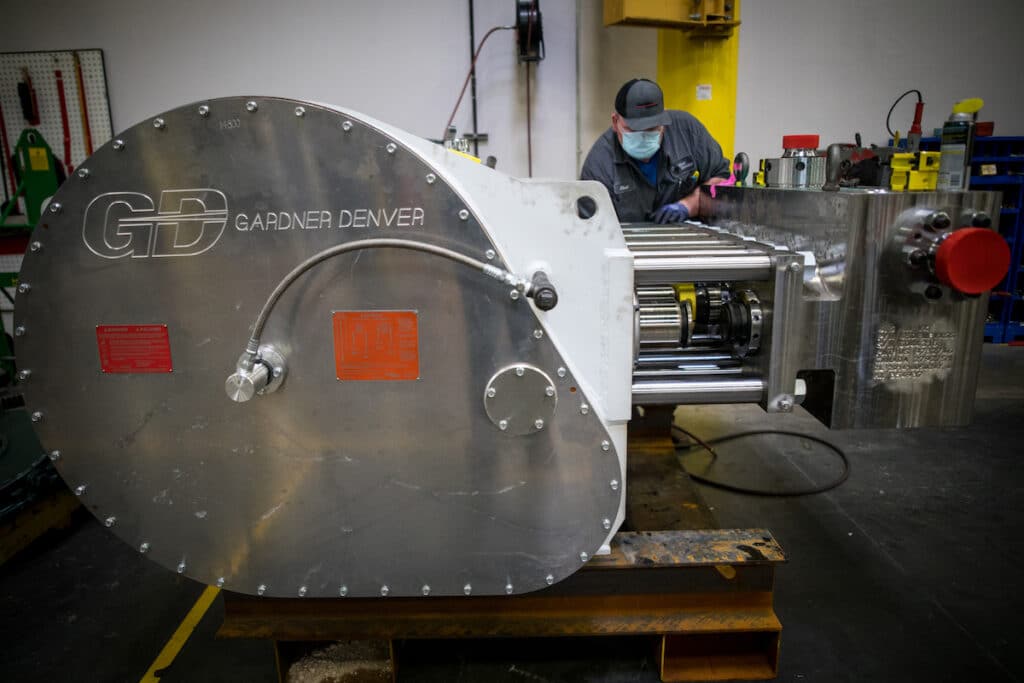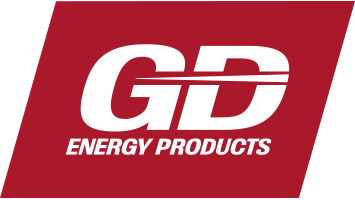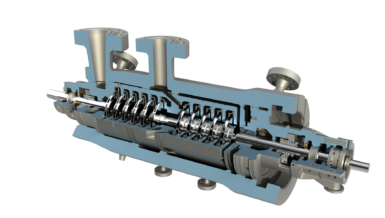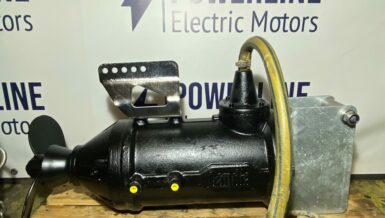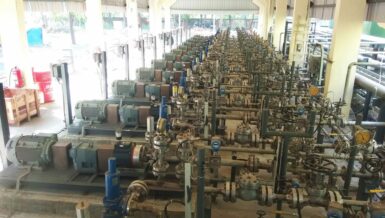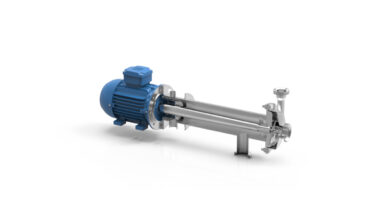CHALLENGE – Field and Lab Analysis to Rectify Pump Failures
C2500 quint frac pumps used across a customer’s hydraulic fracturing fleet in the Marcellus shale experienced lube system failures which caused them to overheat and fail prematurely. The C2500 is a 2500HP reciprocating positive displacement quintuplex pump servicing hydraulic fracturing operations, specifically for this project. Hydraulic fracturing is an upstream oil and gas extraction technique utilizing high fluid pressures to fracture hydrocarbon reservoirs then place propping agents allowing hydrocarbons to flow to the wellbore. After Gardner Denver’s initial testing and gathering of lube system data at the customer’s Ohio field location, the unit was operated and analyzed at the test stand at Gardner Denver’s Fort Worth, Texas repair facility.
A Gardner Denver C2500 power end was installed on a test unit, along with gauges and sensors to aid in understanding system dynamics. The power end oil was replaced with clean non-synthetic ISO 220 oil, per the customer’s specification, and the oil filter element was changed before operation.
SOLUTION – Lubrication System at the Root of Pump Problems
Gardner Denver technicians determined that the thermostatic bypass valve was no longer functioning as designed because it was allowing pressure communication to the oil cooler loop below its designed thermal set point. A new valve was delivered and installed. Additionally, due to the component issues found systemwide, it was determined that a lower viscosity oil would be a better fit for the system. The non-synthetic ISO 220 oil was removed, and the system was filled with synthetic 75W/90 for an additional round of experimental testing, as well as for the factory acceptance test. Gardner Denver Engineering calculated specific factory acceptance test parameters for the unit in question based on the transmission gear ratios. It was observed that the system was only able to maintain 90 psi at the power end pressure relief valve. An attempt was made to adjust the pressure relief valve, but due to the low oil viscosity, the pressure was unable to be increased further. The customer was advised that a slightly more viscous oil could be a better fit for the system. An oil such as 80W/140 could provide enough viscosity to maintain the required pressure at the power end.
RESULTS – Customer Implementations Across Entire Fleet
The unit, as received, was not supplying the required lubrication pressure and flow to the power end. As a result of the testing detailed above, Gardner Denver recommended several changes to all affected units, most notably, choosing an alternate oil with less viscosity to improve system performance. Selecting an oil grade suitable for all ambient temperature conditions the pump will operate in is highly important to the success of the unit’s performance, especially during start-up. Additionally, allowing the oil to warm prior to operating the pump will extend the life of the components and minimize power end heat-related failures.
The customer implemented Gardner Denver’s recommendation across their fleets in the Marcellus and reported an immediate and substantial reduction in overheating, pump failures, and non-productive downtime attributed to the lube oil issue. In addition, the customer later implemented the new recommendation across their entire fleet nationwide and have experienced fewer breakdowns as a result.
Today, Gardner Denver recommends the use of Redline Lubricant, a designed-to-fit para-synthetic oil built to withstand the high loads, pressures, temperatures and moisture contamination inherent in oil and gas applications. After customer field use, our Redline synthetic lubricant has been proven highly successful in harsh environments and is compatible with all major pumps in high pressure applications.




